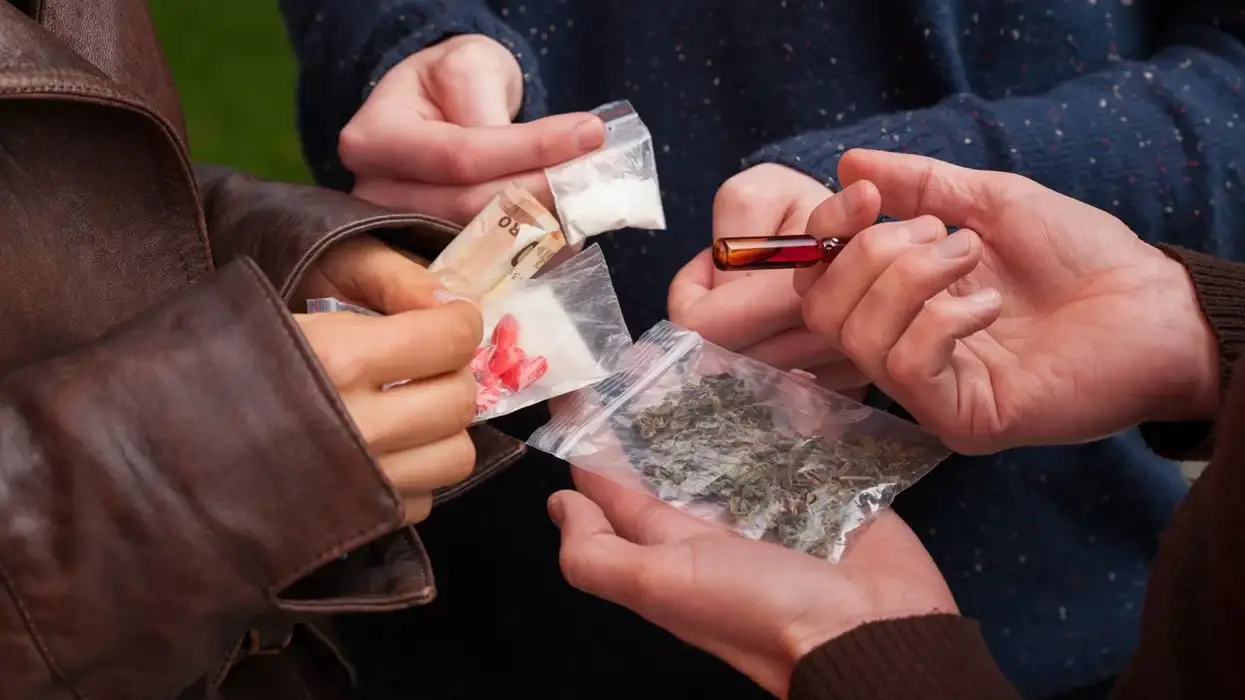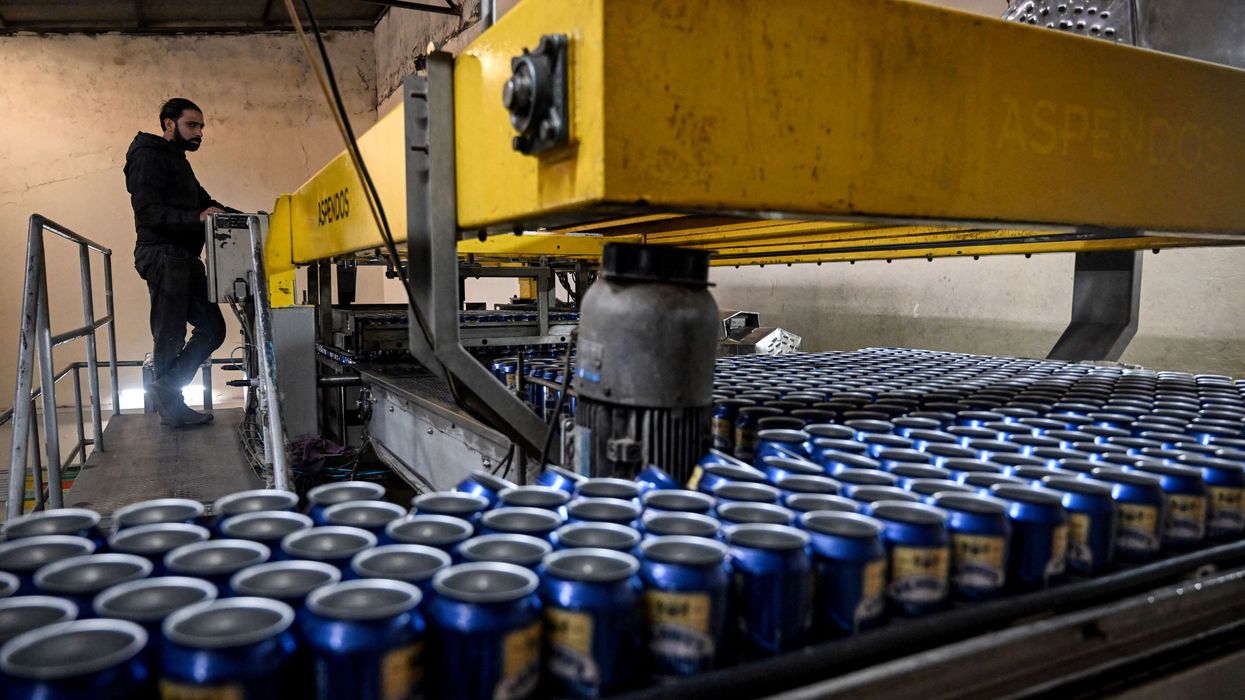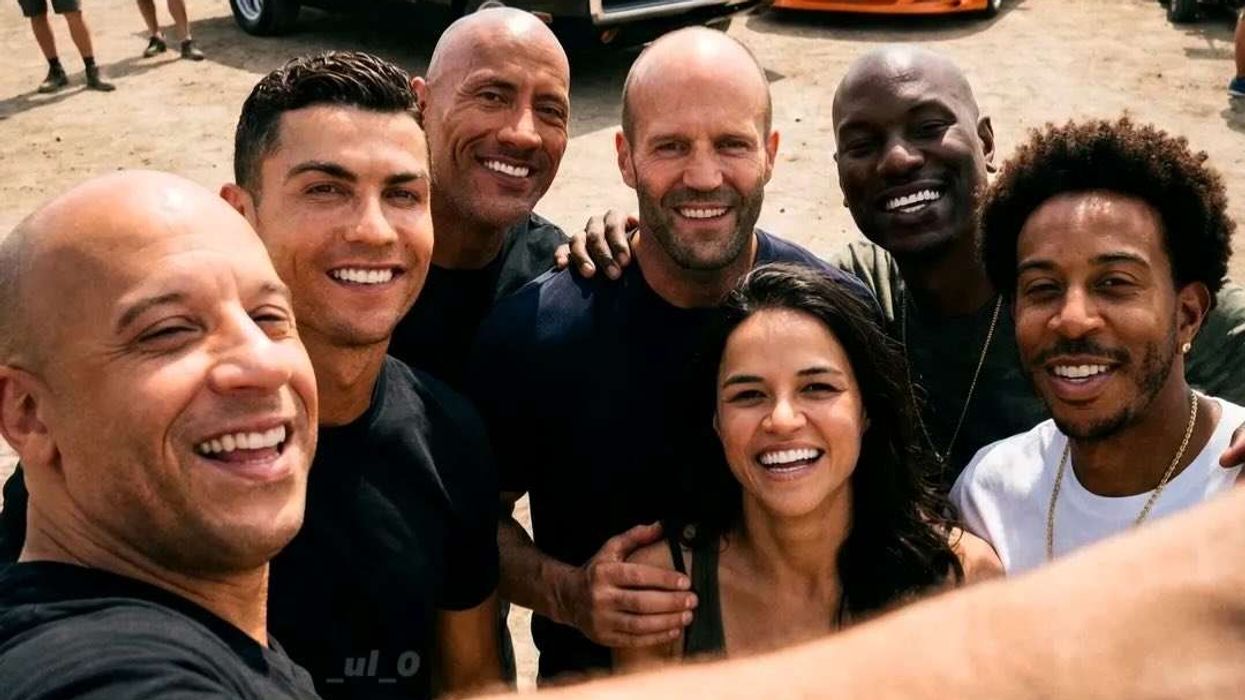Exclusive
By Barnie Choudhury
Parliamentarians and religious leaders are urging south Asian families to work with the police to tackle the blight of drugs which they say are “decimating our communities”.
Shaykh Ibrahim Mogra, a senior imam at the Muslim Council of Britain, told Eastern Eye, there had been a “culture of denial” when it came to drug use and drug crime.
His remarks echo comments from current and former gang members who spoke to this newspaper during an 11-month investigation into drug criminality among south Asian communities.
“I'm deeply concerned,” said Mogra, who sits on the MCB’s national council. “We've been aware of the problem of drug abuse in south Asian communities. Indeed, within the area where I live, it is a known fact that many of our Asian people are involved in the misuse of drugs and abuse of drugs.”
The imam from Leicester urged south Asians to help young people get out of “this criminality”.
“It's a sad reality that many of the issues that affect south Asian communities, we tend to be dismissive of them, or we fail to recognise that they are actually problems that affect particularly our young people, and we are in denial of it.
“Sometimes things are brushed under the carpet, sometimes people hope that it will go away. And that's a very dangerous thing to do. I believe, as community leaders, as faith and religious leaders, we have to tackle these issues that are decimating our communities head on.”
Children arrested
Eastern Eye can reveal that figures obtained under freedom of information show that Metropolitan Police officers arrested 170 south Asian children aged between 10 and 17 during 2018 and 2019.
Year-on-year, arrests went up by 23 per cent compared to four per cent for black children, and they went down by three per cent for white suspects of the same group.
The Birmingham Perry Barr MP, Khalid Mahmood, said that parents needed to “take responsibility” and ask questions if their children unexpectedly had extra cash.
“If somebody turns and says, ‘Oh, look, I’ve bought a brand new Audi or Mercedes or whatever, where did the brand new car come from? Parents need to ask how did you get that money? So there has to be responsibility within the families, and there has to be that sort of engagement with children.”
Police missing signs
Harish* is 37 and from the Midlands. He is a user and dealer and got hooked on heroin when he was 18. It started with cannabis, but Harish said he wanted “bigger highs to relieve the pressures of my family’s expectations”. Before he knew it, he could not live without a fix. He started dealing when he was 19 to feed his habit. He would sell £10 bags to other addicts and make enough to continue his habit.
“They’re much younger now than when I started carrying and dealing, 12, 13, 14, and they’re more organised,” he revealed. “Most of these kids have seven or eight phones. These days they can generate £2 million for these county line and bigger organised gangs. They’re ferried around in taxis and protected to make sure they get the deals done and make money. That’s the bottom line. Money. Nothing more.”
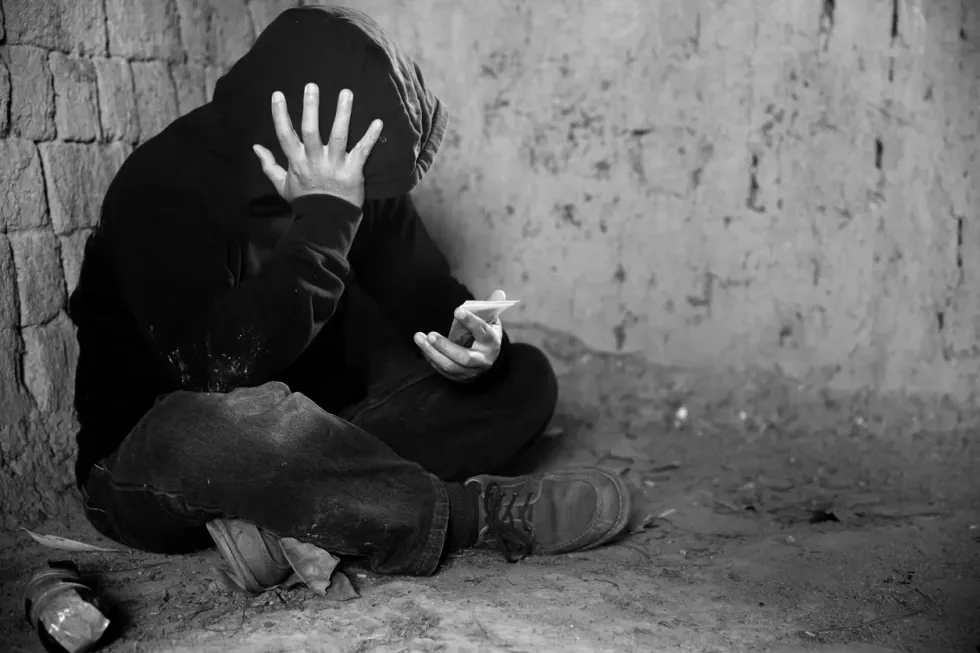
What our investigations show is that police forces in England and Wales are not collecting or collating the data in the same way.
As we reported over the past two weeks, experts are concerned this means that officers are missing the signs of growing drug crime in south Asian communities.
Former drug gangster, Raheel Butt, is committed to stopping young children from turning to a life of criminality.
“These are questions that I raised with local authority, questions I’ve raised with youth offending teams,” he told Eastern Eye. “One of them specifically said to my face that they don't come across Asian gangs. And I said to them, well, it's obvious that that are miles ahead of you, then, because Asian gangs exist. In the county lines, these gangs are very, very much prevalent. They've been around for a long time.”
County line gangs
Just three of the eight forces to which we sent a freedom of information request broke down the data into ethnic groups and age.
Greater Manchester Police arrested a total of 58 south Asian children aged 11 to 17 during in 2018 and 2019, while it was 20 in Derbyshire during the same period.
The police are concerned about young children being used by county line gangs.
Eastern Eye revealed that such gangs are grooming south Asian children as young and seven, and they are getting Asian girls, some only 14, hooked on heroin before forcing them into prostitution.
Despite using the Freedom of Information Act, all 10 forces we approached refused to answer our questions about county line gangs.
Among the questions we asked were:
- In the past three years how many reports of county line drug gangs have your force investigated either through tip offs from the public or active policing through informants?
- We know that children are often groomed or forced to work with these gangs. Under the UN definition a child is anyone under 18. In each year what was the youngest age of child involved in the gang?
Greater Manchester Police said, “There is no way to identify county lines quickly due to the way crimes are recorded. County lines is a term given to a particular problem and not in itself a crime. Every recorded crime relating to drugs would have to be individually reviewed to assess if this was linked to a 'county lines drug gang'.”
Merseyside Police said they “can neither confirm nor deny that the requested data is held”.
They added that they did use informants.
“The public expect police forces and other law enforcement agencies to use all powers and tactics available to prevent and detect crime or disorder and maintain public safety,” they wrote.
“There are a number of covert tactics available and the use of informants (covert human intelligence sources, CHIS) is one of them. Used correctly, in line with the Regulations of Powers Act legislation (part 2), it is a proportionate, lawful and ethical tactic which provides an effective means of obtaining evidence and intelligence.”
Leicestershire Police were concerned that to reveal the information would put their informants in harm’s way.
“County lines gangs have different tiers of management/distribution and it could be harmful to persons involved at lower levels if gangs attempted to determine if CHIS were involved in providing confidential intelligence around these crimes,” they said.
“To confirm information is held, by citing an exemption, or stating no information is held, could be all the information these gangs need to confirm or not their belief that a CHIS provided information.”
Avon and Somerset Police said their tip-offs through informants were inputted manually into reports.
“We do have a ‘tag’ for county lines related intelligence, however this was only introduced in February of this year, so any information previous to this date will not be retrievable using this tag.”
The force said they would have to go through almost 9,300 drug offence records between 2018 and 2020 without computer assistance to answer our questions which would take them over the 18-hour limit for a FOI request.
It was a similar case in the West Midlands.
“This information is not centrally held in a retrievable format as we do not have a specific recording category which identifies county lines drug gangs through tip offs etc.
“From April 2018 and October 2020, we had 293,419 log created, an each one would need to locate and retrieved and the log read to see if this relevant to your request.”
But the force said they had created an “exploitation hub” to try to help children being groomed by gangs.
“We’re expanding the hub,” the force’s lead for county line gangs Superintendent Richard Agar told Eastern Eye. “That means we’ll have more intelligence officers and investigators to target exploiters, plus expand the scope of the hubs from Birmingham out to the wider West Midlands to help identify and safeguard more people susceptible to county lines exploitation.”
Drug seizures
Eastern Eye reported that MPs and experts were concerned that the police were using a “one-size-fits-all” approach to tackling drug gangs, even though research suggests different communities have different ways of operating and profiting from crime.
“County lines is in an abhorrent crime type,” said the Met’s head of serious and organised crime, Deputy Assistant Commissioner Graham McNulty. “It's where we see drug dealers normally based in the large cities, so Liverpool, Birmingham, London, and they're normally exporting crack cocaine or heroin across the country to deliver it to other areas outside of the cities. And what we see with county lines is a huge amount of violence linked to it in dealing those drugs.”
He said that in November 2019, the Home Office had ploughed millions of pounds into fighting the criminals. Police in England and Wales set up three dedicated task forces, in London, the Midlands and Liverpool. Periodically, they will carry out week-long targeted raids to break up these gangs.
Last September they seized more than a £1 million is drugs and £526,000 in cash, as well as arresting more than 1,000 people.
“I will not tolerate county lines drugs gangs terrorising our communities and exploiting young people, which is why I have made tackling this threat a priority,” said the home secretary, Priti Patel, at the time. “They [the raids] send a clear message to criminals that law enforcement is coming after them. I will continue to back the police in their fight to roll up these gangs, including through our £25 million investment in this crucial work.”
But one drug dealer cautioned against the rhetoric being used by the home secretary and the police.
“We’re smart and resourceful,” said Harish. “We’re in places the police will never know or believe. Sure, they’ll catch some, but they’ll never stop us. It’s a business that’s been around for centuries, and unless they make it legal, where’s the incentive to stop? Anyway, with Covid and the lock down don’t expect much activity. Once all this ends, we’ll be back out there, importing, distributing and selling.”
Covid consequences?
The figures Eastern Eye obtained suggest Covid may have had an impact on arrests.
In Leicestershire, for example, arrests for south Asians fell by 13 per cent and two per cent for white suspects, while they went up by 13 per cent for black people during 2019 and 2020.
But the drop is more marked in the neighbouring West Midlands force.
Arrests dropped by 22, 31 and 41 per cent respectively for white, Asian and black suspects respectively in 2020 compared to 2019.
But West Midlands Police reject the idea that Covid is hindering efforts to catch the criminals.
“The pandemic has not paused our pursuit of county lines offenders,” said Agar. “Last week we ran a campaign that resulted in 74 arrests of people we believe are liked to drugs supply.”
Culture of denial
Senior imam, Shaykh Ibrahim Mogra, is urging the authorities to engage with south Asian communities.
“The home office has to be in touch with representative Muslim organisations, such as the Muslim Council of Britain, and others and seek our advice and especially get our expertise about south Asian communities. We can partner with government departments, with law enforcement authorities to ensure that the right policies are in place.”
Some forces, like the West Midlands, do have independent advisory groups, which provide suggestions on how to tackle crime in certain communities.
But reformed drug enforcer, Raheel Butt, wants south Asian communities to do more.
“Just like any other race, we're willing to commit crime, we understand what crime is, we know where the drugs are coming from, we know what we're doing to import these drugs.
“We're just not talking about it enough in our Asian communities. We simply are not. We've got parents that are hiding from these issues, we've got families that are victims of these serious crimes.”
But there is one huge problem among south Asians. Some of the so called “community leaders” who spoke to Eastern Eye believed that criminal drug gangs operated in one particular race and one particular religion, British born Pakistani-Muslims. Our investigation confirms that it crosses all ethnic groups.
The biggest problem is that some forces do not break their data into particular sub-Asian groups. But in Leicestershire in 2020, for example, police arrested more Indians than any other Asian group.
“The sooner we drop these labels, and see drugs as our common enemy, particularly for our young people, our youngsters, our children, the better it will be for all of us,” said Mogra.
“We have a very particular degree of compliance with what our elders say to us, what our grandparents and our parents say to us, what our uncles and aunts say to us. So, we need to capitalise on that tool that we have and impress upon our young people that they must listen and respect our culture, respect our societies and respect even our religion, because all of our religions teach against the use of illegal drugs.”
Deputy Assistant Commissioner Graham McNulty speaks in his capacity as the lead of the serious and organised crime division at the Metropolitan Police.
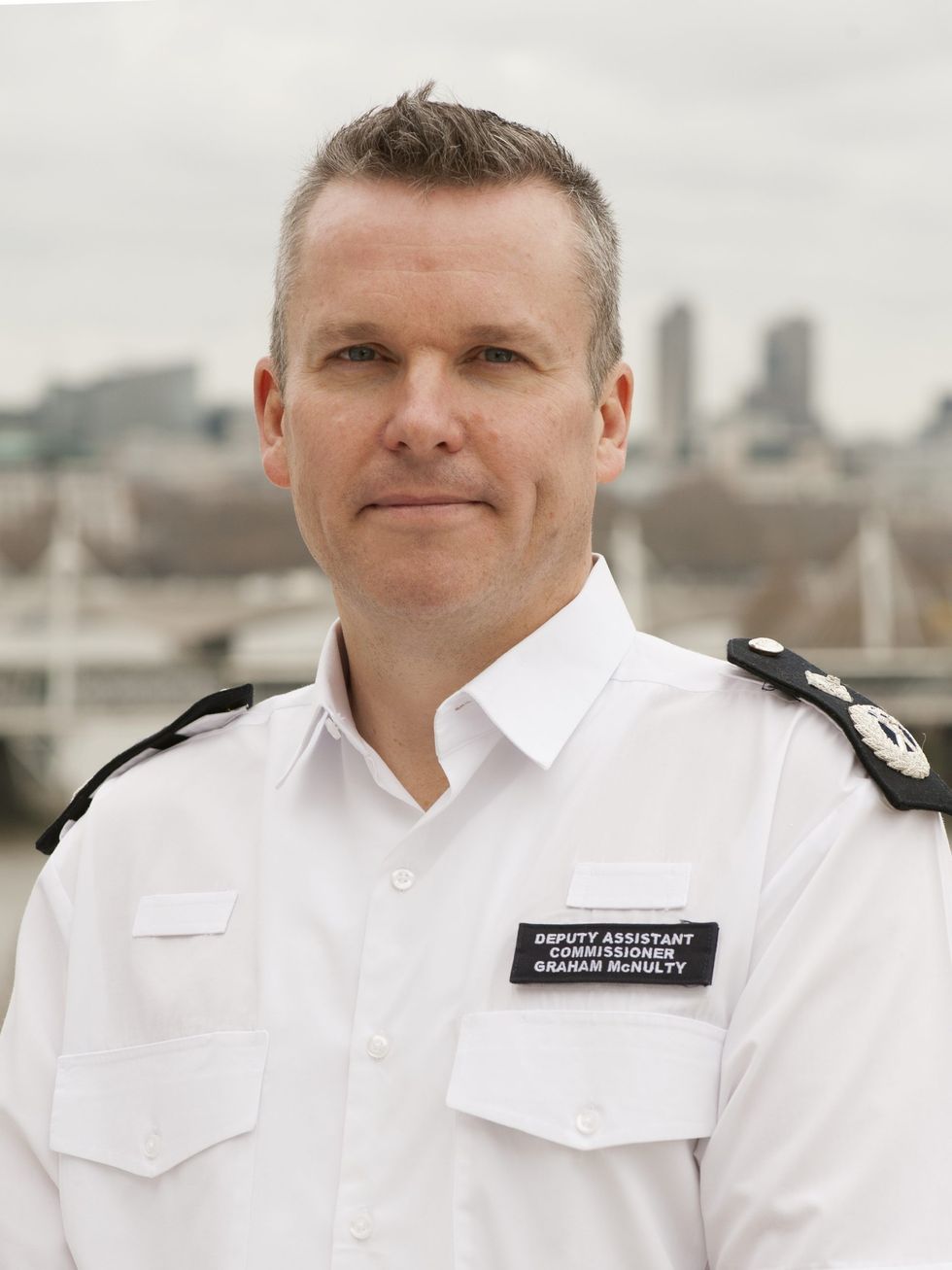
Q: Explain what a county lines gang is.
A: The county lines is in an abhorrent crime type. It's where we see drug dealers normally based in the large cities, so Liverpool, Birmingham, London, and they're normally exporting crack cocaine or heroin across the country to deliver it to other areas outside of the cities. And what we see with county lines is a huge amount of violence linked to it in dealing those drugs.
Q: How are they different from organised criminal gangs?
A: What we see with county lines is it tends to be in the lower tiers of drug dealing. So often drug deals, street dealing, sometimes to addicts, sometimes the homeless people, but it tends to be the lower tiers of drug dealings. But of course, above that, they'll be linked to other groups who they're buying the drugs from.
Q: So, in terms of county lines, what are the police doing to stop them?
A: We had quite a big change at the end of 2019 in November, where we received some Home Office funding, which effectively set up three dedicated task forces. One in London, one in the Midlands, and one in Liverpool. And really, our work has been focused on tackling those county lines, but tackling them at either end. So, for example, a line might run between Avon and Somerset and London. We will work in tandem so us the exporting force working with Avon and Somerset as the importing force to bring that line down. And our real focus has been the line holders, the person behind the line, because that's the individual who's exploiting young people and vulnerable adults. That's the individual taking the profit, and often that's the individual who won't go hands on with the drugs and allow others to take the risk for them. But they effectively are coordinating county lines.
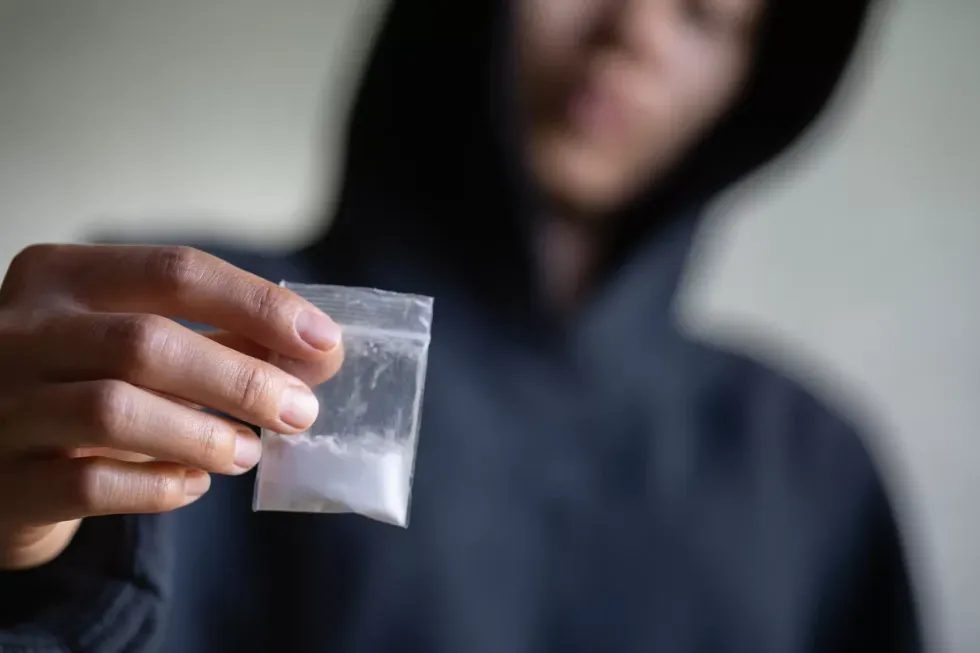
Q: You can't talk nationally, you can only talk about the London figures in the metropolitan area. But what do you see in terms of the proportionality when you compare it say to black and white county line gangs?
A: What we see with county lines certainly in London is we do you see some gangs that are linked to the Asian community. But not an over representation, in fact, an under representation. I think if we look at the numbers of people we've arrested and charged and to give you some idea of the quantity since November 19, we've arrested more than 532-line holders and associates in London. And we've brought nearly 1000 charges against those individuals, but about nine per cent of that cohort have been from an Asian background. And actually, when you look at London's population, you'll see what I mean that that that’s an underrepresentation.
Q: How do you investigate them?
A: When we investigate the county line, we have no idea of the ethnicity of the individual behind that line. What will happen is a force will give us a telephone number ending, say 1234, and that telephone number is dealing drugs in their force area. But often what we will then do is we'll be able to identify in London that number, but I should say that number is normally pay as you go unregistered number. So, we have no idea when we commence our investigation where it will end up. Eventually we do manage to, through various means, we've managed to attribute the phone number and go through the door. We normally capture the individual with that phone, which gives us an incredibly strong evidence to take to court, which is why the vast majority of individuals we charge have pleaded at court immediately for these offences. But hopefully that explains why, when we start, we have no idea of the ethnicity or the background of the individuals we will ultimately be dealing with.
Q: What happens after that when you have the ethnicity available to you, what do you do with those figures?
A: In all honesty, we monitor the figures, because we want to understand whether there's an over representation or an under representation, but they're available to me. They're available for me to talk to journalists like you so we can understand it a bit better. To be honest, we focus on the evidence, what we're seeing, what we find, what we get back. In particular, what we've been focusing on in recent months is the individuals who are exploited.
Q: Sources are telling me they've got police officers, and they've got officials on the payroll. How concerned are you by those allegations?
A: What I would say is I've not seen that in the period I've been involved in county lines. We have very good structures and processes inside policing to monitor the behaviour of the people who work within policing. Like any walk of life, there may be an odd occasion, there may be an incident, but the vast majority of people I know in law enforcement are here for the right reasons. They want to protect communities, and that's what they're working very hard to do.
Q: And in terms of other sources who say you have to meet targets, or you won't get funding, what do you say about that?
A: I'm not so sure that's the case, what I would say I'm in the Met police. And number one objective, the commissioner has made very clear, we've got to bring down violence. And the reason we're focusing on county lines is we know it generates a lot of violence. My staff don't need targets, they're passionate. And if we can take down another county line, if we can stop another young person from being exploited, we will do it.
